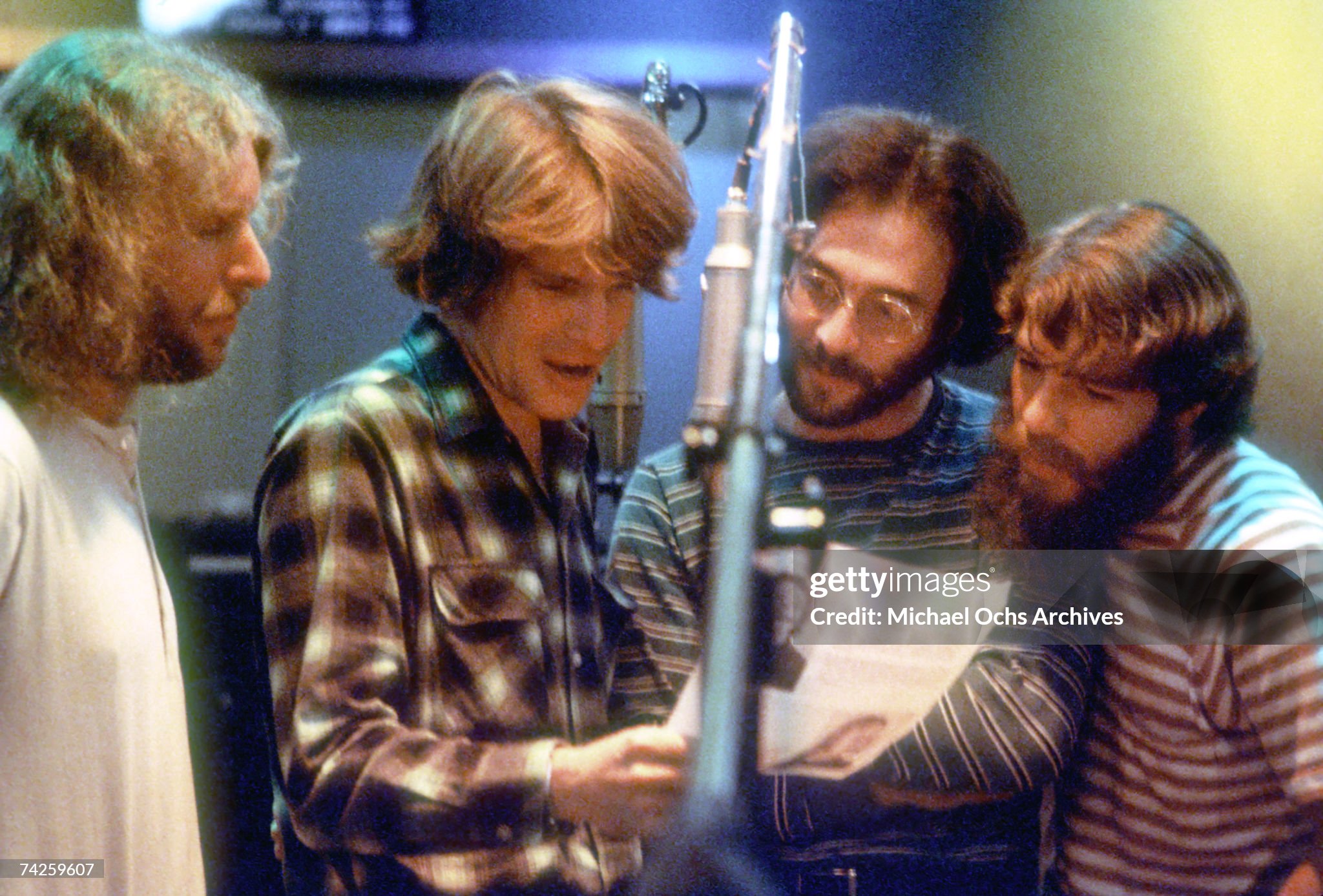
“I Heard It Through the Grapevine” becomes a slow-burning storm of suspicion and truth, where doubt travels faster than certainty and silence feels heavier than sound.
When Creedence Clearwater Revival released their version of “I Heard It Through the Grapevine”, the song underwent a profound transformation. What had once been a tightly structured soul confession was stretched, darkened, and given room to breathe—until it no longer felt like a pop song at all, but rather an atmosphere, thick with unease and emotional tension. Creedence did not merely cover “Grapevine”; they reimagined it as a journey inward, one that unfolds slowly, relentlessly, and without reassurance.
Originally written by Norman Whitfield and Barrett Strong, the song had already achieved immortality through Marvin Gaye, whose 1968 recording captured heartbreak with elegance and restrained anguish. Creedence Clearwater Revival approached the same narrative from a different emotional latitude. Where Gaye’s version pleads and aches, Creedence’s version broods. It waits. It listens to the silence between rumors. And then it lets that silence stretch until it becomes unbearable.
Their rendition appeared on the 1970 album “Cosmo’s Factory”, a record often remembered for its balance between raw energy and disciplined craft. Yet “I Heard It Through the Grapevine” stands apart, both in length and in spirit. At over eleven minutes, it defies radio convention, choosing instead the logic of obsession—how suspicion doesn’t arrive all at once, but returns again and again, circling the mind like a restless thought that refuses to leave.
From the opening moments, the mood is unmistakable. A steady, hypnotic bass line anchors the song, while the rhythm section moves with a deliberate, almost ominous patience. John Fogerty’s voice enters not with urgency, but with restraint, as if holding back emotion is the only way to survive it. He does not sound shocked by what he’s heard. He sounds resigned—like someone who has been expecting the truth long before it finally reached him.
Lyrically, “I Heard It Through the Grapevine” is about betrayal filtered through distance. The pain doesn’t come directly from the beloved, but through whispers, half-truths, and secondhand knowledge. That indirectness is crucial. It mirrors how emotional wounds often form—not from what is said openly, but from what is learned too late. Creedence emphasizes this by allowing the instrumental passages to stretch far beyond the words, as if the mind is replaying the rumor again and again, searching for certainty that never arrives.
The extended jam at the heart of the song is where Creedence’s interpretation truly asserts itself. It feels less like improvisation and more like endurance. Each repetition tightens the emotional coil. There is no release, no cathartic explosion—only persistence. Love, once shaken, does not resolve neatly. It lingers. It changes shape. It shadows every thought.
What makes this version especially haunting is its earthbound quality. There is nothing ornamental here, nothing polished for comfort. The sound is rooted, heavy, almost physical. It feels like standing still while bad news travels toward you, knowing you cannot stop it. In that sense, Creedence’s “Grapevine” feels less like a song about romantic betrayal and more like a meditation on trust itself—how fragile it is, and how easily it erodes once doubt takes hold.
Over time, this recording has come to be seen as one of Creedence Clearwater Revival’s boldest artistic statements. It shows a band unafraid to slow down, to repeat themselves, to let mood outweigh melody. It asks the listener for patience, but rewards that patience with depth. Each minute feels earned, each repetition purposeful.
In the end, Creedence’s “I Heard It Through the Grapevine” is not about discovering the truth—it’s about living with it once it’s known. There is no comfort offered, no lesson neatly wrapped. Only the quiet understanding that some words, once heard, cannot be unheard. And in that understanding, the song finds its power: steady, shadowed, and unforgettable.